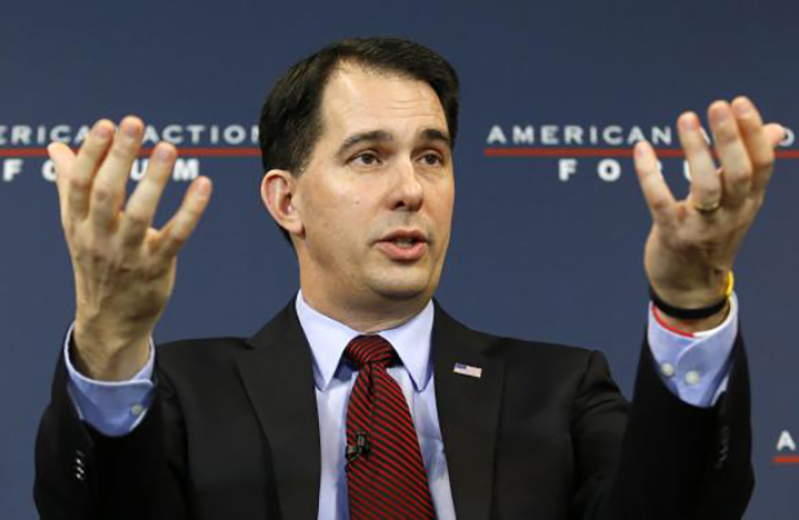
Wisconsin Gov. Scott Walker found himself in an interesting situation after he questioned whether or not President Barack Obama was a Christian, deciding to take on the media's role in asking "gotcha" questions instead.
According to John Dickerson of Slate, the Wisconsin governor, a possible 2016 presidential candidate for the Republican Party nomination, refused to answer questions that pertained to President Obama's Christian faith. Walker argued that answering such questions were a waste of time in his opinion.
"To me, this is a classic example of why people hate Washington and, increasingly, they dislike the press," Walker said. "The things they care about don't even remotely come close to what you're asking about."
The source of the original controversy came from Dan Balz and Robert Costa of the Washington Post. They asked Walker, who was in Washington on Friday attending the winter meeting of the National Governors Association, about the president's Christian faith.
"I've actually never talked about it or I haven't read about that. I've never asked him that," Walker said in a calm voice. "You've asked me to make statements about people that I haven't had a conversation with about that. How [could] I say if I know either of you are a Christian?"
Walker then elaborated to the Washington Post reporters that most Americans probably did not care about such matters.
"People in the media will [judge], not everyday people," he said. "I would defy you to come to Wisconsin. You could ask 100 people, and not one of them would say that this is a significant issue."
Dickerson argued that Walker was "trying to transform a duck into a weapon by making the press an issue." He contended that even the silliest of arguments can affect Americans' impressions of any potential presidential candidate, Walker included.
"It's the silly stuff that breaks through and defines a candidate because people don't always spend weeks looking over the position papers on their websites or studying their speeches," Dickerson wrote." Or, the silly stuff sets a first impression that sticks."
Dickerson contended that silly "gotcha" questions do have a place in presidential campaigns, arguing that if people like Walker refused to answer them, then people may question whether or not the Wisconsin governor should secure the Republican presidential nomination.
"The silly questions are the ones that give you a break from the searing questions that you've just now promised you've committed yourself to in your declaration against the frivolous and obscure," Dickerson wrote. "Duck those hard questions now that you've declared yourself guardian of the important and people are going to think you're trying to trick them."
Even though people may forget this question in the long-term, Dickerson maintained that Walker's response to the media's questions may have revealed something important about the governor.
"His reticence does suggest a timidity and caution at this stage in his campaign," Dickerson wrote. "That could be prudence and Walker is arguably the riskiest Republican politician in America having taken on the unions and survived a bruising re-election that resulted from it."
Dickerson thought that Walker failed to take advantage of answering the question, writing that he "missed his first opportunity" to set himself apart from the other presidential contenders.
Walker spokesperson Jocelyn Webster told the Washington Post that the Wisconsin governor was only trying to make a principled point.
"Of course the governor thinks the president is a Christian," she said. "He thinks these kinds of gotcha questions distract from what he's doing as governor of Wisconsin to make the state better and make life better for people in his state."






